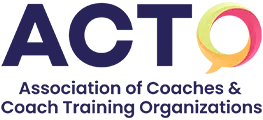危机
When written in Chinese, the word ‘crisis’ is composed of two characters. One represents danger and the other represents opportunity.

Coach training schools are no exception. The obvious response has been to move the training online. Nothing wrong with that. However, that does seem driven by one set of needs, and does not pay heed to other needs which co-exist and may be important as well.
This is the story (still evolving) of how we at LTW (Mumbai cohort) have approached this dichotomy.
If we approach our teaching cohort and organisation as a living system, then we recognise that we cannot have a standard one size fits all solution. Here we want to borrow a concept from yoga. For any asana, or even a cellular function, there needs to be a balance of two opposing and complimentary ways of being. The Sanskrit terms, Sukha and Sthira. Sukha literally means ‘good space’ and can be taken to mean ease for the system and all its components. Sthira can be translated as stability, it is what supports.
So, the question really is how can we have ease for all while meeting the structural requirements so that the system can function effectively.
Given the advent of COVID19 pandemic, we have noticed the following forces at play and anticipate that any coach training school will need to address the same in order to continue functioning effectively.
- Adaptive challenges. There is resistance to adapt. Either there is denial or/and there is intolerance for an idea that is different or unfamiliar. The need to stick with the tried and tested is high as it offers psychological safety during this turbulent period. This means sticking to timelines and structures or making minimal or familiar adjustments like moving the course online; maintaining the structure as is. Participant coaches will look to recreate familiar experiences.
- The challenge here is that online learning needs be as experientially powerful as classroom learning. The duration and the sequencing of online learning needs to be thought through to meet or surpass expectations.
- Not knowing how the virus will spread and behave in the coming months, flexible schedules need to be planned.
- A lot of coaching needs in the current period focus on survival and sustaining oneself through this period. The training curriculum needs to evolve to bring in aspects of coaching during VUCA period that is hugely disruptive. Volatility and uncertainty are the new normal.
DESIGN PRINCIPLES keeping in mind PSYCHOLOGICAL & SOCIAL IMPACT:
We have observed that both our coaches-in-training and the world they serve are experiencing either fear and intolerance of anyone who is different or is impacted by the virus or/and a denial of what is occurring. Following design principles supported us in finding the best possible solution towards fulfilling our coach training objectives
- Create equity towards contributing to the decision making for the emergent solution(s). All `voices matter. Include the interests of those who are most likely to be quarantined or at the greatest risk of being infected.
- Facilitate co-ownership and shared responsibility for executing the solution. Practise constrain focused problem-solving.
- Ensure avoidance of false placebo (it will all be well soon!).
- Tap into narratives of group courage and resilience to confront reality and accept what is present and dangerous. Slow down the learning process.
- Bring in a community wellbeing and support focus; prioritise the not so interesting but essential aspects for creating a healthy learning environment. g. boost immunity, avoid risk, be responsible citizens, focus on learning and living/practising the coach learnings through this disruption and offer support /helplines where the internal stress that one is experiencing can be addressed and transformed.
We at LTW India (Leadershipthatworks.com) are experimenting with the following approach which would address the various needs of the system, and bring it back to a balance of sukha and sthira.
The approach is described below:
We have involved the participant(s) group along with the faculty and administration co-create a forward-looking solution. We facilitated a data-driven decision-making approach where every voice is heard. This gave an insight into needs that ranged from
-
- Desiring excellence in the content and the experience
- Wanting to complete the course on time
- Honouring travel restrictions
- Meet the need for the co-created space and continuity of learning relationships
The sukha was in creating a space where all voices were listened to and respected. It allowed the system to breathe, pause and opened space for solutioning together. It allowed for some ease to be restored in an uncertain and anxiety driven space.
The sthira: Within the boundaries of logistical and financial constraints of the program, we designed three possible solutions. (we recommend this as a minimum)/ In our case, the three solutions were:
-
- Exclusive online.
- Blended online and in person
- Delayed in person with delayed certification.
We are planning for both contingencies – short term impact of virus – till June 2020 and long-term impact of virus – a twelve-month outlook.
We are encouraging joint accountability with the participants for deploying the solution. The acceptable and agreed to solution in our case is a blended online-in person training approach with personalized path for those who cannot make it for a delayed in person session.
The opportunity
We see this as an opportunity to build our learning community, make it stronger and resilient, as these crises are going to only become more frequent. It is an opportunity to reframe our approach to pedagogy. It is an opportunity to add relevant curriculum. And it is an opportunity to look at new and innovative ways to do the same. Last but not the least, it is an opportunity for each of us to dig deep into our values, and create systems that make us who we are, and make us human.
We continue to hold the principles of accepting what is, keeping alert and being flexible and strong, so we can have ease and stability in having a plan that everyone has agreed to.
Dr. Wasundhara Joshi (Faculty, Leadership That Works) & Vikram Bhatt (President elect ACTO)




I appreciate the article and the flexibility and I offer a reframe of VUCA.
VUCA for me is Vision, Unity, Connection and Authenticity
Teri-E